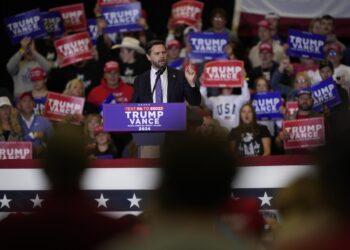,
WASHINGTON: It's a primary medium for the way the Air Force does business, whether it is used for command, control, communications, intelligence, surveillance or reconnaissance, yet cyberspace remains a relatively new and vulnerable frontier.
And Air Force leaders know it.
With technology evolving so quickly, cyberspace is probably the only warfighting domain in which we have pure competitors, and Airmen must stay ahead of them, said Gen. Ronald E. Keys, Air Combat Command commander, at the recent Air Force Association Air Warfare Symposium in Orlando, Fla.
“Almost everything I do is either on the Internet, an Intranet, or some type of network — terrestrial, airborne or spaceborne,” he said, “Yet, everyone out there knows that hackers can (potentially) get into my network and slow down or corrupt (it) or cause me to lose faith in the networks or shut them down completely.”
It's that vulnerability that has motivated the top Air Force leaders to mobilize the creation of a cyberspace command.
“Cyberspace is a fighting domain where the principles of war do apply,” said Secretary of the Air Force Michael W. Wynne at the symposium. “We need true warfighters in this domain, so today, at 8th Air Force; Lt. Gen. Bob Elder is leading the changing culture in cyber from a mind-set that is ruled by intelligence gathering and message-carrying to a warfighter footing.”
General Keys explained it further.
“It's time to get our concept of operations together,” he said. “The terrorists are using cyberspace now, remotely detonating roadside bombs. Terrorists use global positioning satellites and satellite communications; use the Internet for financial transactions, radar and navigation jammings, blogs, chat rooms and bulletin boards aimed at our cognitive domain; e-mail, chat and others providing shadowy command and control; and finally overt and covert attacks on our servers.”
Chief of Staff of the Air Force Gen. T. Michael Moseley also remarked on how terrorists are using the ease of cyberspace to benefit their cause.
“We're seeing more sophisticated attacks occurring daily,” he said. “There's a virtual terrorism university on the net, helping mobilize, train and finance terrorist networks, not to mention tarnishing America's image with propaganda.”
A cyberspace command would be committed to bringing such action to a halt. The command would recruit people in all types of career fields and with wide expertise, since it goes beyond what most people think of when they hear about computers, networks and electronics, General Keys said.
“We're still sorting through (what skill sets will be required), but it won't be just guys with thick glasses drinking (soft drinks) and eating candy bars late at night,” General Keys joked. “We need electrical engineers, computer engineers, strategic planners and thinkers. We need all those things that you have in a major command to go to war, and we need people to understand that this is not going to be another geeky stovepipe with a bunch of green doors that nobody can get into. This is going to be an integrated part of air and space.”
General Keys said he hopes that all Airmen realize that defending cyberspace is just as important as defending air and space.
“We're at the dawning of a new ground — cyberspace — and its many manifestations,” he said. “And just as we're clearly seeing the way that we may have to fight with and defend the high ground of space, we're assured that we must fight within and defend cyberspace. Across all of our domains, we need to have freedom from attack and the freedom to attack.”









